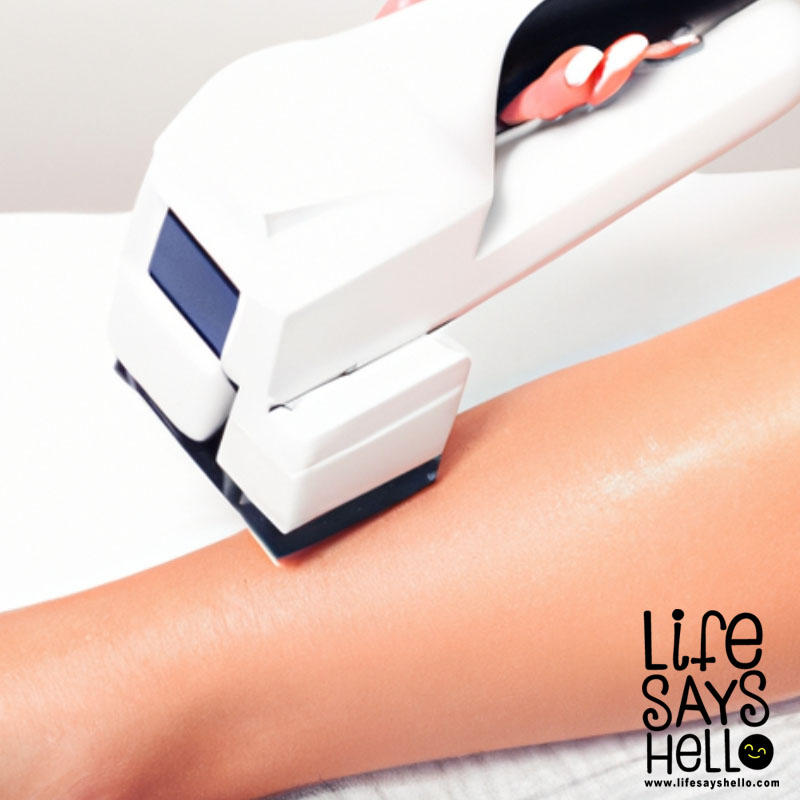The Side Effects and Complications to Know About After Wisdom Teeth Removal

Wisdom teeth removal is one of the most common dental surgeries performed today. Over 5 million wisdom teeth are extracted each year in the United States alone. While usually a straightforward procedure, the removal of wisdom teeth can sometimes lead to certain side effects and complications.
It’s important to be aware of the potential issues that may arise after having your wisdom teeth taken out. Forewarned is forearmed when it comes to dental surgery recovery!
Pain and Swelling Are Common After Extraction
The number one side effect wisdom tooth extraction patients report is pain. Some degree of discomfort is to be expected due to the invasive nature of removing impacted or partially impacted teeth. Swelling is also common after surgery and is related to the inflammatory process that occurs during healing.
Following wisdom tooth removal, patients usually feel the worst pain between days 2 and 3. That’s because the numbing medication has worn off, and the body’s natural inflammatory reaction is at its peak. Pain levels tend to gradually improve after this point. Swelling around the cheeks and jawline also increases and peaks around days 2 and 3 before slowly subsiding.
Both pain and swelling can be managed with at-home care:
Take over-the-counter pain relievers like ibuprofen regularly for the first 3-4 days after surgery. Your dentist may also prescribe stronger medication.
Apply an ice pack to the cheek adjacent to the extracted tooth for 10-15 minutes several times a day. This helps minimize swelling.
Sleep with your head elevated on extra pillows to reduce swelling.
Eat soft, cool foods for a few days. Avoid very hot foods.
Rinse gently with warm salt water after meals (don’t swish vigorously).
Limit physical activity for the first couple of days.
Following your dentist’s post-op instructions carefully is key to keeping pain and swelling under control! Call your dentist if symptoms don’t start improving after 4-5 days.
Difficulty Opening Your Mouth? It’s Called Trismus
Limited mouth opening, also known by the medical term trismus, is another common side effect after wisdom teeth are extracted. Trismus occurs when the muscles around the jaw become inflamed and stiff from the surgery. This restricts your ability to open your mouth fully.
Trismus usually peaks on days 2 or 3 after extraction, similar to pain and swelling. It may make it difficult to brush your teeth, eat normally, and even yawn!
Here are some tips to help manage trismus:
Apply warm compresses to the jaw muscles.
Gently stretch your mouth open multiple times a day. Don’t force it.
Do jaw exercises after the first few days. Open and close slowly, and move your jaw from side to side.
Stay on a soft food diet until you can open your mouth more comfortably.
Avoid yawning wide open.
Use an oral irrigator to keep extraction sites clean instead of brushing if needed.
Take anti-inflammatory medication to reduce inflammation causing trismus.
Call your oral surgeon if trismus persists beyond a week or is very severe. They may recommend medication or physical therapy to improve jaw movement.
The Dreaded Dry Socket!
Dry socket is a possible complication that can occur after wisdom tooth extraction. It happens when the blood clot at the surgical site fails to form properly or gets dislodged too soon. This exposes the bone and nerves underneath to air, food, and liquid, causing irritation and severe pain.
Dry socket usually sets in about 2-4 days after surgery. Symptoms include:
Throbbing, radiating pain at the extraction site that doesn’t get better with medication
Bad odor or taste coming from the empty socket
Possible discharge of blood and debris from the socket
Bone exposed at the extraction site (your dentist will need to confirm this)
Dry socket occurs in about 5% of wisdom tooth extractions but is more likely if:
You smoke or use tobacco products
You don’t follow post-op care instructions
You have an infection prior to surgery
Birth control usage (increases risk in women)
Difficult wisdom tooth extraction
To treat dry socket, your dentist will first flush out the socket and then pack it with medicated dressing to soothe the exposed bone and nerves. This provides almost immediate pain relief. The dressing will need to be changed every few days until the socket heals, which takes 7-10 days.
You can lower your risk of dry socket by:
Quitting smoking for at least a week before and after surgery
Avoiding sucking actions, like using a straw, for 24 hours after extraction
Rinsing very gently after meals
Limiting physical activity for a few days
Taking prescribed antibiotics on schedule
Numbness - Usually Temporary but Can Be Permanent
Many patients report numbness or tingling after having their wisdom teeth taken out. This occurs when nerves in the jaw are irritated during surgery. It may affect the lips, chin, gums, teeth, or tongue depending on the tooth extracted.
Thankfully, wisdom tooth extraction numbness is usually temporary, lasting days or weeks as the nerves heal. But in rare cases, it can be permanent.
Why does numbness happen?
Wisdom teeth are often close to main sensory nerves. It’s easy to irritate them when removing impacted teeth.
Swelling compresses nerves, causing numbness that resolves as swelling goes down.
Less commonly, nerves may be cut or damaged during extraction.
Tips to reduce numbness:
Discuss nerve location with your oral surgeon prior to wisdom tooth removal.
Have only an experienced surgeon perform the extraction.
Follow post-op instructions to minimize swelling, which compresses nerves.
Wait it out - most numbness takes 4-8 weeks to fully resolve.
When to be concerned about numbness:
Numbness that lasts longer than 12 weeks
Numbness combined with bad taste/pain on the affected side
Numbness that progressively worsens
Difficulty moving facial muscles on the numb side
See your dentist promptly if you have these issues. They’ll examine nerve function and may order further testing or refer you to a specialist. Permanent nerve damage is uncommon but can happen.
How to Spot and Prevent Infection
While rare, infections can occur after wisdom tooth removal. The extracted tooth socket acts as an open wound vulnerable to bacteria. Infection rates are estimated at 1-3%.
Signs of infection after wisdom tooth extraction include:
Fever above 100°F
Chills and body aches
Fatigue and generally feeling unwell
Severe pain that seems to worsen each day
Pus or foul-smelling discharge from the extraction site
Severe swelling and redness at the site and facial swelling
Difficulty opening your mouth due to swelling
Risk factors for wisdom tooth extraction infections:
Pre-existing gum or tooth infections
Smoking or vaping
Advanced tooth decay
Lowered immunity conditions
Not taking prescribed antibiotics properly
See your dentist immediately if you notice signs of infection. You’ll likely be prescribed a course of antibiotics. Warm saltwater rinses and good oral hygiene are also important.
How to prevent infection after surgery:
Have any infections treated prior to wisdom tooth removal
Quit smoking before and after surgery
Take antibiotics as directed
Follow all post-op care instructions carefully
Call your dentist if symptoms seem to worsen
Bleeding - When to Be Concerned
It’s normal to see a little blood when rinsing your mouth in the first 24 hours after having your wisdom teeth out. More severe bleeding is less common but can be serious if not addressed quickly.
What does normal bleeding look like?
Pinkish saliva when gently rinsing
A few drops of blood on your pillow
Slow oozing from the extraction site
When is wisdom tooth bleeding excessive?
See your oral surgeon right away if you have:
Bleeding that doesn’t stop within 2 hours
Heavy bleeding filling your mouth
Large clots coming from the socket
Bleeding that seems to increase, not decrease
Feeling faint, confused, or weak due to blood loss
What causes excessive bleeding?
Dislodged or poorly formed blood clot
Opening the blood clot by sucking through a straw
Increased blood pressure
Clotting disorders like hemophilia
Blood thinning medications
To stop bleeding:
Apply firm, direct pressure to the socket with gauze or a tea bag. Hold for 20-30 minutes.
Lie down and rest. Keep your head elevated.
Avoid strenuous activity for 24 hours.
Don’t rinse forcefully as this can dislodge the clot.
If bleeding doesn’t slow down or stop with pressure, call your oral surgeon or go to the emergency room. You may need stitches placed to close the wound, medication to control bleeding, or even emergency surgery.
Nerve Injury - A Serious Complication
The trigeminal nerve provides feeling to the face, and in rare cases, can be injured during wisdom tooth extraction. This nerve runs close to the lower wisdom teeth, making it vulnerable to damage during impacted tooth removal.
Signs of trigeminal nerve injury include:
Numbness or tingling in the chin, lip, cheek, or tongue after surgery
Pain, burning or electrical shock sensations in the face
Muscle weakness affecting chewing
Loss of sensation in the face
Drooping of the mouth
Why does it occur?
The nerve is close to the wisdom teeth roots.
There is scarring or inflammation around the nerve.
The nerve is accidentally cut.
Excessive drilling or traction used during surgery.
Swelling compresses the nerve.
Is the damage permanent?
Most trigeminal nerve injuries are temporary and improve over weeks as swelling decreases.
Partial injuries or nerve compression often resolve fully.
However, a nerve that is cut or severely injured may result in some permanent damage.
Treatment:
Medications to reduce nerve inflammation
Oral steroids to decrease swelling
Surgery to repair a severed nerve if possible
Physical therapy to improve facial muscle movements
Manage chronic pain if the injury is permanent
Prevention:
3D imaging to visualize tooth and nerve locations
Avoiding excessive surgical trauma
Carefully removing teeth without excess force
Overview of Wisdom Tooth Extraction Side Effects
While wisdom tooth removal is generally safe, make sure to watch for these potential side effects and complications during your recovery:
Pain - Worsens on days 2-3 before improving
Swelling - Also peaks on days 2-3
Trismus - Difficulty opening mouth due to inflammation
Dry Socket - Severe pain from lost blood clot
Numbness - Usually temporary but can be permanent
Infection - Symptoms include fever, chills, foul odor
Bleeding - Excessive bleeding requires prompt attention
Nerve Injury - Trigeminal nerve damage is rare but serious
Follow all post-op instructions carefully and keep up with salt water rinses and oral hygiene. Report any abnormal or worsening issues to your dentist right away. While wisdom tooth extraction side effects can occur, they are generally minor and resolve quickly when managed properly.




Comments